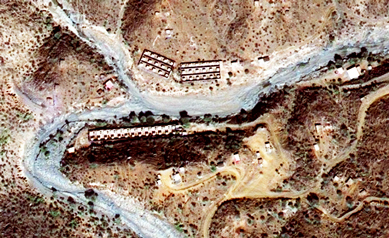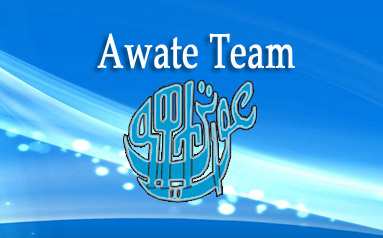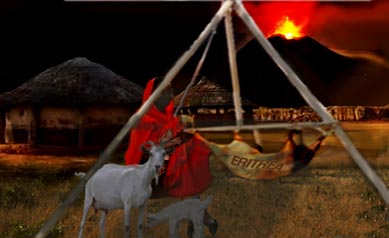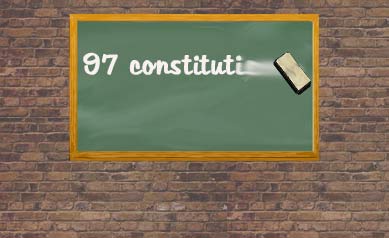Eritrea – Prisoner of Conscience Day

We have “Armed Struggle Launch Day” (September 1), “Martyr’s Day” (June 20) and “Independence Day” (May 24.) It stands to reason that we should have “Prisoner of Conscience Day” because those who didn’t die for the revolution, and who didn’t live to see Eritrea’s independence, have been imprisoned by it. Actually, in unique Eritrea, someone can celebrate all of these days simultaneously: some Eritreans were transported from prisons in the Eritrean field to prisons in liberated Eritrea ON Independence Day. And since the Eritrean revolution has been arresting Eritreans as early as it started, it stands to reason that the date should be close to September 1….like September 18, the day the Group of 15 (G-15) were arrested in 2001.
Two papers came out in 2001 from two distinct groups of People’s Front for Democracy & Justice (PFDJ), the sole legal political party, movement Presidential Sandbox in Eritrea. Both were addressed to members of the PFDJ. One was authored by President Isaias Afwerki & Co (we called them the “G-1”) in January 2001, using the Orwellian title of “Discussion Paper,” inviting fear and loathing and promising peace, stability and strengthening of the PFDJ. The other was authored by a dissident group of politicians, reformers collectively known as “G-15” in May 27: it was an “Open Letter to All Members of PFDJ”, inviting responsibility and participation; and offering contrition, transparency and rule of law.
While the two papers were circulating, there was something remarkable happening in Eritrea–an independent press. Meqaleh, Keste Debena, Tsigenay, Admas, Setit…doing something that had never been done in the history of the People’s Front: a media that was only subject to publishers/reporters self-censorship and not to party-censorship. This could only have happened because of who was then the Minister of Information: Beraki Gebreselassie. It couldn’t have happened under his predecessor, the ideologue Alamin Mohammed Said, nor his immediate successors: the ideologue Zemehret Yohannes and the national security enforcer Naizghi Kiflu.
It has been 14 years since the two papers were written: Enough time has passed to see which vision won and what has been the outcome. Let’s begin with the conclusions of the two papers:
The Discussion Paper (The G-1)
In this destructive campaign, it is expected that the Woyane would be vanguard. It is a campaign that it has embarked on, and an effort it has accelerated, since the day after the conflict and for the last two and half years. We can skip over the role of the traitors who collaborated with Woyane by saying it is no different from Woyane. As for those who, in the midst of trying and challenging times, were jockeying and hustling about to exploit the situation by selling national and people’s interest for self-interest, we have seen many of these opportunists in our long struggle. What demands attention, although very few in number, is the [presence of] cadres and leaders of the Front who, for various reasons (panic, hopelessness, absconding responsibility, to create political opportunities by complaining about lack of position and authority) participated in the campaign.
We have gained a great deal of wealth and experience from the period of Invasion and Defiance. Because, despite the campaign against us, our policies, with few exceptions, were correct; because we had created an environment where our people can enjoy peace and human dignity; because our people had faith in the Front and the government; because we were able to groom The Inheritor [Warsai]; because we were able to benefit from our organization and mobilization experience, we were able to meet the challenge head on. Although with time and positive developments the environment is cooling off, we haven’t totally eliminated the Woyane threat. To deal our enemies total defeat, to restore peace and sovereignty to our country and to bring about tranquility and peace of mind to our people, to purify the political environment and to conduct a proper assessment of our situation, and to correct our shortcomings, we need to strengthen the People’s Front.
The Open Letter To All Members of PFDJ (G-15)
Just as we bear ultimate collective responsibility for our performance as leaders, we are obliged to bear equal responsibility for correcting our failures. Since our failure to lead properly has injured the people, we are prepared and determined to make amends and compensate our people by working tirelessly to build, in concert with other PFDJ members and the general Eritrean public, an accountable and responsible government in Eritrea….
If we do not take corrective action immediately but instead continue as we have been, then it is not hard to imagine from the experiences of the past ten years the devastating consequences that await us. We need act in concert to resolve our differences, to avoid our security being compromised and our internal unity is weakened, thereby exposing us to becoming victims of external forces. This is a serious national affair. Determined, courageous, capable and nationalist Eritreans must play their role. Let them utilize their capacity to contribute their share to their country. Let us take practical lessons from the Woyane invasion. We should never risk compromising our hard won independence and making our fertile land barren. Time is passing, and our external enemies have not folded their hands waiting for us.
We shall continue our struggle to establish the rule of law. We shall continue to struggle to implement the sacred ideals and principles of the front and our national constitution. We shall continue to struggle using every legal and democratic means available. We have no ambition other than making these sacred ideals a reality. We take this opportunity to call on all PFDJ members and the Eritrean people in general to express their opinion through legal and democratic means and to give their support to the goals and principles they consider just.
Fear & Loathing Won But…
The G-15 phenomenon did not affect all Eritreans equally. Firstly, because the letter was addressed to “PFDJ members” and the Eritrean people appeared as an afterthought, some of the people did not feel sufficiently engaged. This was, of course, due to the very nature of the Open Letter itself: it was necessary only because attempts to follow organizational protocol to conduct organizational discussions were stifled by President Isaias Afwerki who intimidated the members of the Central Council (the legislative arm of the PFDJ) into not signing a petition for a meeting. In any event, the G-15 had followed up their “Open Letter To All Members of the PFDJ” with “An Open Letter to the Eritrean People” on August 3, 2001 where they introduced a detailed reform agenda. Secondly, it was because of what the G-15 conceded in their open letter: “our failure to lead properly has injured the people.” Some Eritreans who had been very injured by their leadership saw them as complicit in prior crimes and didn’t want to speak up for them. It is unfortunate because they didn’t bother to read (or they didn’t believe) the second half of the sentence: “we are prepared and determined to make amends and compensate our people.”
But some of us heard them. In June 2001, almost 2,200 Eritrean signed a petition calling for a dialogue between the G-15 and G-1. The petition called on all sides to exercise restraint and for Eritrea’s religious leaders and elders to mediate and for the Eritrean Defense Forces (EDF) to be neutral.
But the G-1 was unmoved. The president said he had never heard of “freezing.” Bokhri ezney. He was shocked to learn about Mahmoud Sherifo’s (then the vice president) claim that Isaias is not interested in political pluralism. Shocked, I tell ya. And those who didn’t do their job, of course they should be asked to account for it, he said. (But not, you know, in a meeting of the National Assembly or Central Council which can’t happen now. Or ever.) Yemane Gebreab, the political director of the ruling party and a presidential “advisor” said, Crisis? What crisis? We have always had these kinds of debates and we have our “own culture” of fixing them.
Then the culture was enforced. The G-15 who called for reform; the newspaper reporters who conducted interviews with them; the publishers of the newspapers; the elders who tried to mediate; the EDF members who called for neutrality; the PFDJ members who called for rule of law… were all arrested or exiled.
Governments often present their citizens clear choices: you can have liberty or you can have security, but you can’t have both. Burkino Faso just did that. What Isaias Afwerki’s clique promised in the “Discussion Paper” was that it will take some steps that the people may find unseemly but, in exchange, it would strengthen the PFDJ, which will enable it to “restore peace and sovereignty” to Eritrea and to “correct our shortcomings.” Let’s see what it has brought us in the last 14 years:
1. Far from being strengthened, the PFDJ has been weakened. It hasn’t had a congress since 1994 (21 years). It hasn’t had an election; its 75-member Central Committee (if it exists at all: almost half are dead/exiled/frozen) hasn’t met since 2000; the 150-member National Assembly it controls (if it exists at all) hasn’t met since 2002;
2. It has restored neither peace nor sovereignty to Eritrea. Faced with a challenge that every diplomat is trained for–a political problem with an antagonistic neighboring country–it hasn’t had a single creative idea and it thinks that if it only says the same thing (Final & Binding) only louder, then “something” will change. And the only thing that has changed is that the measures it took to supposedly demonstrate Eritrea’s strength–a large standing army in state of alert–has resulted in massive and dangerous exodus of Eritrea’s youth;
3. It has destroyed Eritrea’s economy, chased off the entrepreneurial class;
4. It has raised an entire generation of Eritreans who are completely and totally unfamiliar with what rule of law looks like and only know of military drills, torture, imprisonment and cruelty.
5. It has changed the country into a police state where most of us Eritreans have at least one immediate family member who has been abused, made to disappear, arrested or extra-judicially killed.
Was this at all predicted by members of the G-15? Every single one of them who gave an interview indeed predicted it:
Mahmoud Sherifo, tSigenai, April 6, 2001: “The responsibility we were given by the National Assembly [to draft law on party formation] was snatched…because the President has no desire to see the formation of political parties…”
Mesfin Hagos: Tsigenai, May 21, 2001: “It is not acceptable to itemize unacceptable reasons for delaying giving power to the people.”
Berhane Gebrezgheir: Meqaleh: June 10, 2001: “The Eritrean people have the right and the capability to know the truth and to propose solutions.”
Petros Solomon: Tsigenai: June 11, 2001: “When confronted with criticism, it is not useful to think only in terms of digging up trenches and launching counter-offensives….criticism should be accepted with an open heart and an environment of tolerance….institutionalism is the best approach to decision-making.”
Oqbe Abraha, Keste Debena, June 11, 2001: “I have the right to defend myself, relying on truth and the law, in an independent court of law so I won’t be condemned for wrongs I did not commit.”
Ambasssador Haile Menkerios, (interview with Alazar Keleti and Amanuel Zerzghi), June 14, 2001: “One may oppose an opinion; but it is not constructive to accuse someone of sub-nationalism and being anti-national for refusing to march in lockstep.”
Haile Derue, June 20, 2001: “Obviously, one in power can do anything including muting dissent. But he still can’t kill the ideas. So, in the end, it is a futile exercise…. The president should not try to settle this dispute forcefully and should not try to solve this extra-legally or try to smash it using some pretext.”
Saleh Kekia, Admas, June 27, 2001:“We believed in and fought for the principles of People’s Front. People’s Front is neither too distant to us, nor too close to others. It is our front. What we are saying is we have problems in the implementation, so let’s correct them. We are saying let’s execute the goals we believe in. To say this is not the right time is to deny reality.”
So where are we now? Eritreans point of reference for governments is to compare them with previous governments: Italians vs Turks; Brits vs Italians; Haile Selasse vs Brits; Mengistu Hailemariam vs Haile Selasse. And now, Isaias Afwerki vs Mengistu Hailemariam. And now, what was once impossible to conceive is conventional wisdom: that in many respects–family visitation rights of the arrested; torture; environment of fear; corruption–the Isaias Afwerki regime is worse than Mengistu Hailemariam’s Derg.
And to be arrested resisting that is a badge of honor. And that’s why we should have Prisoners of Conscience Day. On this occasion, I would like to wish all my compatriots–and, indeed, all humanity–who are are in dungeons, underground prisons, and solitary confinement relief from their pain and suffering and a Friday prayer that their relief comes very soon and that their torturers face justice with due process.




Awate Forum